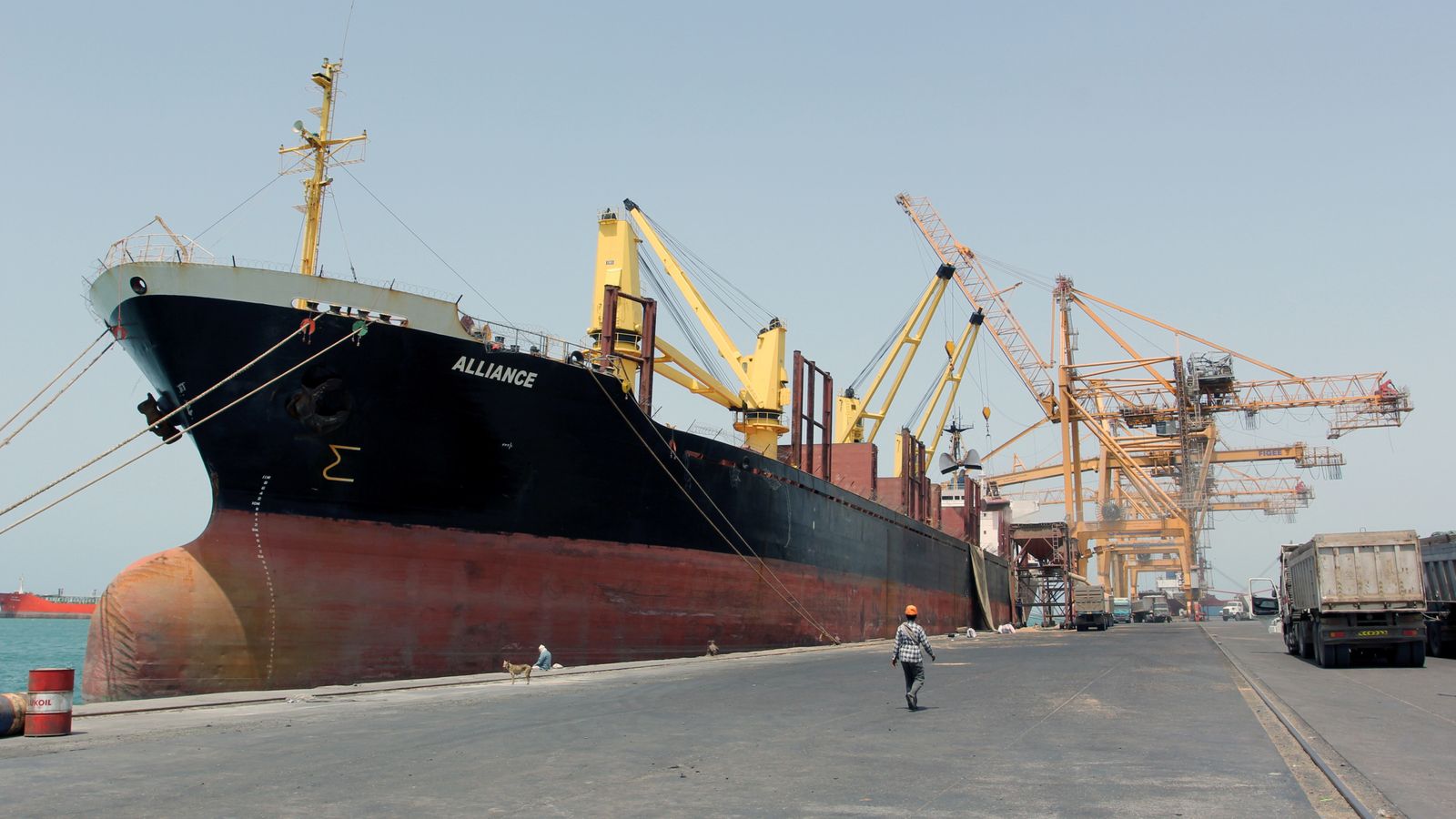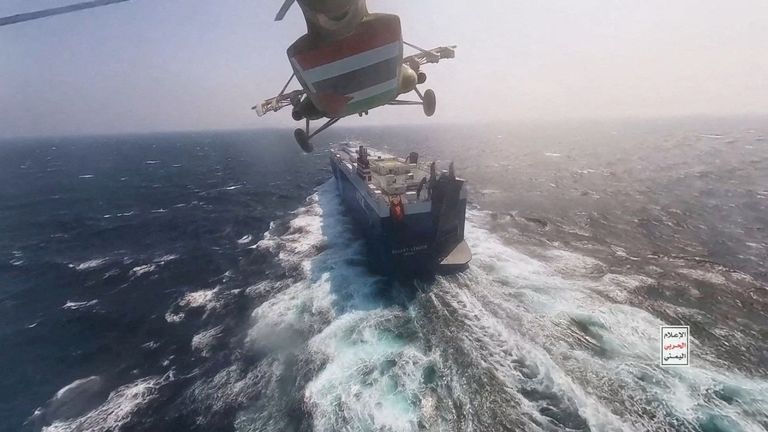Shipping companies have cautiously welcomed the announcement of a US-led multinational naval force to fend off Red Sea attacks, but are still re-routing vessels as the line of impacted crafts grows.
The world’s second-largest shipping company, Maersk, said it’s “very positive” to have joint efforts on maritime security, but it needs to see more detail and a quick response to avoid delays and spiralling costs.
Chief infrastructure officer Rabab Raafat Boulos said: “With the line of impacted vessels building fast in the area, progressing with speed will be key for the coalition in order to minimise direct negative impact on global trade.”
On Tuesday morning, the firm announced it was re-routing vessels that had been paused in the Red Sea area through the Cape of Good Hope, South Africa – adding up to two weeks and increased costs to journeys.
A build-up of traffic and cargo at ports across the world during the pandemic was behind the supply chain woes that brought about a bout of inflation, before price rises were worsened by the energy crisis following Russia’s invasion of Ukraine.
Read more
Shipping diversions risk new wave in cost of living crisis
Maersk was the first firm to pause shipping through the route that shortens shipping times by connecting the Mediterranean and the Indian Ocean via the crucial trade artery that is the Suez Canal.
A string of attacks claimed by Yemen‘s Houthi rebels in the Bab al Mandeb Strait, at the southern end of the Red Sea, has caused companies including oil producer BP from using the route.
Houthis had been targeting delivery boats to and from Israel to pressure the country to cease attacks on Gaza.
Maersk joins the world’s other largest shipping companies who have announced pauses.
The world’s fifth largest, Hapag-Lloyd, also welcomed the creation of a multinational protective operation, called Operation Prosperity Guardian, where US ships will join with vessels from the UK, Bahrain, Canada, France, Italy, Netherlands, Norway, the Seychelles, and Spain in an effort to increase safety in the 20 mile-wide passage.
But Hapag-Lloyd’s Nils Haupt said it’s not enough to ensure confidence and recommence travel through the Red Sea.
“As long as safety and security is not guaranteed we will for sure not pass the Red Sea,” he said.
The international trade union representing workers on ships, Nautilus International, said the commitment of crew protection under Operation Prosperity Guardian.
“No-one should have to risk getting kidnapped or have missiles launched at them while going about their job and Nautilus will do everything it can to protect its merchant navy members,” it added.
Fears of an oil price hike have yet to materialise as the cost of a barrel of the Brent crude benchmark was $77.85 on Tuesday afternoon, below September’s high of $96 a barrel.

